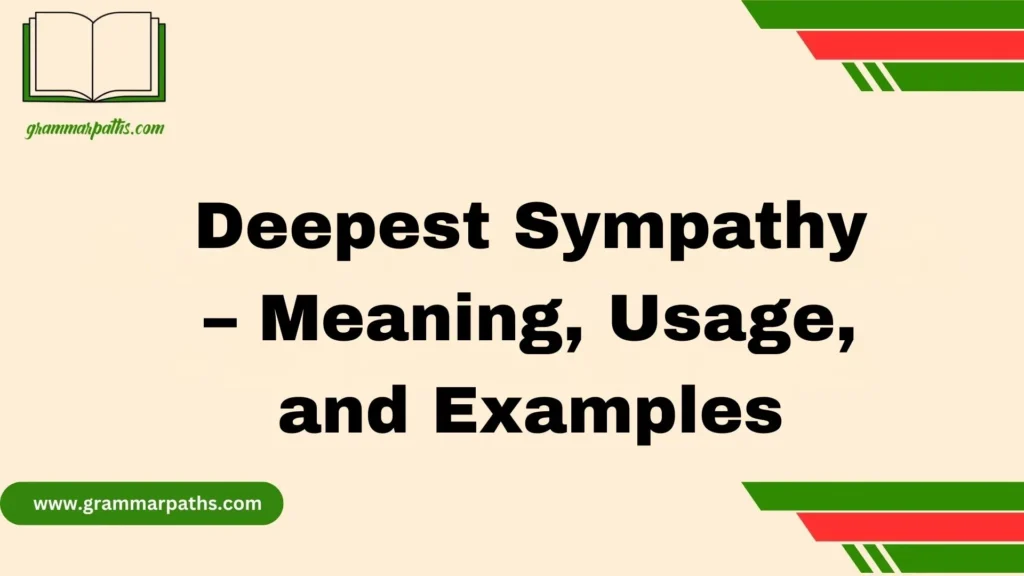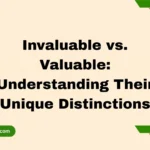As professionals, writers, and editors, many of us end up second-guessing phrases in the English language, even when we have a strong command of it. I’ve hesitated before when choosing the right words, especially when two seem similar—like a duo that looks related and shares the same root, but isn’t fully interchangeable. Take the pair Substantive and Substantial as an example; they carry different meanings, show up in different contexts, and their use often depends on content, significance, size, or amount. Knowing the difference makes all the matters of communication clearer, and I’ve learned that having the know-how to spot these nuances separates an amateur from a pro.
Through my work, I’ve discovered a variety of tricky pairs that can trip you up until you’re properly equipped with understanding. In writing, I’ve found that being helpful, confident, and accurate often comes down to refining a single word or choice. This simple adjustment can improve the precision of your message and even lift the level of professionalism in everyday communication. When I finally recognized this, it turned into a valuable trip of growth in both language and career.
What Does “You Are Missed” Mean?
The phrase “You are missed” tells someone that their absence is noticed and felt. It emphasizes the impact of being gone rather than the speaker’s direct emotion.
Let’s compare it with the more common “I miss you.”
| Phrase | Voice | Focus | Tone | Example Use Case |
| I miss you | Active | The speaker’s feelings | Warm, personal | Talking to a close friend |
| You are missed | Passive | The effect of absence | Formal, distant | Writing a sympathy card |
Notice the difference. “I miss you” places the spotlight on the speaker. “You are missed” shifts the focus to the person being missed, making the statement feel broader, sometimes gentler, and occasionally more formal.
Grammar Breakdown: Why It’s Passive Voice
“You are missed” is built on a passive structure. It follows the standard pattern:
Subject + form of “to be” + past participle
In this case:
- Subject → You
- Verb (to be) → are
- Past participle → missed
The speaker doesn’t state who is doing the missing. That’s the essence of the passive voice—it removes or downplays the agent of the action.
Why does that matter? Because it changes the tone.
- Active: “I miss you.” (speaker-centered, personal)
- Passive: “You are missed.” (listener-centered, impersonal or collective)
This isn’t just grammar trivia. Tone matters when you’re trying to convey empathy, formality, or restraint.
When the Passive Voice Works Best
The passive voice gets a bad reputation for being stiff, but sometimes it’s the best choice. “You are missed” is especially effective in contexts where warmth is paired with formality.
Professional Settings
In workplace emails, you may not want to sound overly personal. Saying “You are missed on the team” strikes a respectful tone without crossing into emotional overstatement.
Example:
“Your leadership and ideas are missed in our weekly strategy sessions.”
Sympathy and Condolences
Passive voice softens personal emotions in sensitive settings. In a condolence card, “You are deeply missed” honors someone without making it about the speaker’s grief.
Example:
“Your father’s kindness and wisdom are missed by everyone who knew him.”
Broad or Collective Expressions
When multiple people share the same feeling, passive voice lets the statement stand on behalf of a group.
Example:
“You are missed at every Sunday dinner.”
Here, the focus is on the collective absence rather than one person’s perspective.
When It Feels Awkward or Inappropriate
Despite its correctness, “You are missed” isn’t always the best option. In some cases, it can sound distant or even cold.
Casual Conversations
Between close friends, family, or romantic partners, “I miss you” feels warmer and more natural. Passive phrasing risks creating distance where intimacy is expected.
Example:
- Warm: “I miss you so much.”
- Awkward: “You are missed by me.”
Overly Formal Settings
Sometimes, formality can backfire. Imagine texting your partner “You are missed.” It might come across as robotic instead of affectionate.
Risk of Detachment
Because the passive voice hides the subject, the emotion can feel watered down. The listener may wonder: “Missed by who?”
Alternatives to “You Are Missed”
If you’re unsure whether to use the phrase, here are stronger alternatives tailored to different situations:
Direct and Personal
- I miss you.
- We miss you.
- I’ve been thinking about you a lot lately.
Emotional Variations
- I wish you were here.
- Your absence leaves a gap.
- Things don’t feel the same without you.
Professional or Formal Alternatives
- Your presence is valued.
- Your contributions are appreciated.
- We look forward to having you back.
Cultural and Emotional Nuances
Different cultures handle expressions of absence differently.
- American English tends to favor direct, active phrases like “I miss you.”
- British English often uses slightly more formal tones, making “You are missed” more acceptable in cards or public tributes.
- Asian cultures may lean toward indirect expressions, valuing subtlety over direct declarations of emotion.
Tone also shifts depending on medium:
- Spoken words → tend to favor “I miss you.”
- Written words → “You are missed” carries more weight, especially in cards, speeches, or formal letters.
Common Misunderstandings
Even though “You are missed” is grammatically sound, it can cause confusion.
Confusing Tenses
Some people misread it as past tense (“You were missed”), which implies the missing is no longer ongoing. In truth, “are missed” is present tense.
Sympathy vs. Casual Use
A message like “You are missed” in a text can sound overly heavy, as if it belongs in a memorial. Context is key.
Overuse of Passive Voice
Using passive expressions too often can make your communication sound stiff. Balance is essential.
Real-Life Examples
Workplace Email
“Your expertise and insights are missed in our weekly meetings. We look forward to your return.”
Sympathy Note
“Your kindness and laughter are deeply missed by all who had the privilege to know you.”
Personal Letter
“You are missed at home every day, but especially at the dinner table.”
These examples show how the phrase adapts depending on formality, audience, and emotional depth.
Conclusion
Mastering small details in the English language—like choosing the right words or spotting subtle nuances—can make a big difference in communication. From my own work as a writer and editor, I’ve seen how a single word choice can improve clarity, build confidence, and even raise the level of professionalism in daily interactions. Whether you’re a student, a teacher, or one of the many professionals using language every day, learning to handle these tricky pairs helps you stay accurate and refining in both personal and professional settings.
FAQs
Q: Why do people feel uncertain about phrases like “You Are Missed”?
A: Because, much like confusing Substantive and Substantial, people often hesitate when choosing expressions that look similar but carry different meanings depending on the context.
Q: Does grammar play a big role here?
A: Yes. The command of grammar and the ability to spot what’s interchangeable or not is key to ensuring clarity and avoiding missteps in writing or communication.
Q: How can I avoid mistakes?
A: Equip yourself with understanding, practice refining your word choice, and remember that small adjustments can improve precision and help you sound more confident and helpful.
Q: Is learning these distinctions only useful for writers and editors?
A: Not at all. These lessons benefit everyone—from students to business professionals—because language matters in every aspect of life.

Grace Marie is the dedicated writer behind GrammarPaths.com, where she shares her passion for English grammar, idioms, and writing mastery. With a strong background in language studies and years of experience helping learners improve their communication skills, Grace creates clear, practical, and engaging content that makes English easy to understand.












